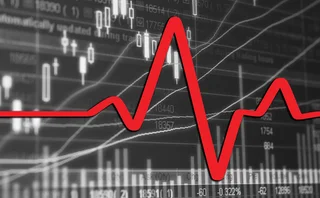
CDS markets fear European sovereign debt crisis

The continuing budget crises in several eurozone countries, led by Greece, are being reflected in spiking credit default swap (CDS) prices on the countries' sovereign debt – and on the debt of their major banks. Even some domestically focused corporates are being caught out.
A general strike in Greece began today, and with the prospect of a bailout for the deficit-laden country still uncertain
Only users who have a paid subscription or are part of a corporate subscription are able to print or copy content.
To access these options, along with all other subscription benefits, please contact info@risk.net or view our subscription options here: http://subscriptions.risk.net/subscribe
You are currently unable to print this content. Please contact info@risk.net to find out more.
You are currently unable to copy this content. Please contact info@risk.net to find out more.
Copyright Infopro Digital Limited. All rights reserved.
As outlined in our terms and conditions, https://www.infopro-digital.com/terms-and-conditions/subscriptions/ (point 2.4), printing is limited to a single copy.
If you would like to purchase additional rights please email info@risk.net
Copyright Infopro Digital Limited. All rights reserved.
You may share this content using our article tools. As outlined in our terms and conditions, https://www.infopro-digital.com/terms-and-conditions/subscriptions/ (clause 2.4), an Authorised User may only make one copy of the materials for their own personal use. You must also comply with the restrictions in clause 2.5.
If you would like to purchase additional rights please email info@risk.net
More on Credit markets
Liquidnet sees electronic future for grey bond trading
TP Icap’s grey market bond trading unit has more than doubled transactions in the first quarter of 2024
Single-name CDS trading bounces back
Volumes are up as Covid-driven support fuels opportunity for traders and investors
Podcast: Richard Martin on improving credit migration models
Star quant proposes a new model for predicting changes in bond ratings
CME to pass on Ice CDS administration charges
Clearing house to hike CDS index trade fees from July after Ice’s determinations committee takeover
Buy side fuels boom in single-name CDS clearing
Ice single-name CDS volumes double year on year following switch to semi-annual rolls
Ice to clear single-name bank CDSs from April 10
US participants will be able to start clearing CDSs referencing Ice clearing members
iHeart CDS saga sparks debate over credit rules
Trigger decision highlights product's weaknesses, warns Milbank’s Williams
TLAC-driven CDS index change tipped for September
UK and Swiss bank Holdco CDSs likely inclusions in next iTraxx index roll, say strategists







